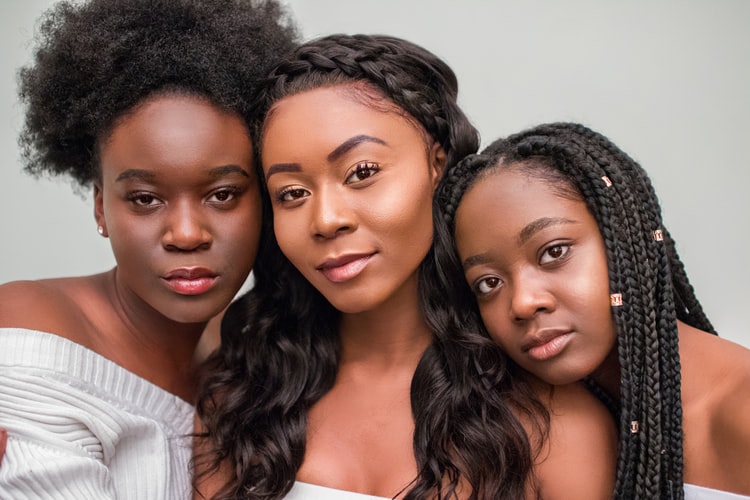
Earlier this year I wrote this piece for a publication. It was my first attempt on contributing to a co-author situation. Long story short, my written contribution was denied because the writing “didn’t hone in on the Black women experience”. When I read the review, I was upset. I was upset because a non-melanated woman was trying to tell me what the Black women experience was like.
At that moment, I realized that I didn’t need this woman to validate my Black experience or tell me what it felt like to be a Black woman. I didn’t need this woman to create a space for me to share my story about Black women, I have my own platform.
Here’s a piece of what I wrote:
The conversation of diversity representation in professional environments has always been an issue of concern. Although, conversations surrounding the implementation of diversity and representation have been addressed there has been little to no progress. Such progress has been documented in the limited representation of Black women in professional environments (Cukier, Jackson & Gagnon, 2019). The limited representation of Black women remains prevalent in education and vocational industries. As a result, Black women have normalized the non-visibility of Black women in professional environments. The scarcity of Black women in professional environments is a concern.
There is an intentional need for more representation. A fundamental change is needed. Black women need to be accounted for at a higher percentage in professional environments. The absence of Black women in professional environments is problematic. Decisions in professional environments are being made for Black women without the presence of a Black woman. There is no doubt that Black women deserve to be included in professional environments. For every Black woman that is not accounted for in a professional environment it is a disservice to Black girls, Black women, and those trying to understand the narratives of Black Women.
Representation matters! Representation matters because it communicates the ways in which individuals, groups, and cultures need to be valued. When representation is omitted, it creates a societal strain on cultural inclusivity. Cultural inclusivity cannot shift without effective demonstration. Black girls, Black women, and people seeking to understand the narratives of Black women need to see Black women doing incredible things. It’s simple, “you can’t be what you can’t see” – Marian Wright Edelman.
Representation matters because more Black women need to see themselves in professional environments. Many Black women find themselves being the only one in many professional environments. Being the only Black woman in a professional environment is a perplexing feeling. When a Black woman in the only one in a professional environment, she is expected to speak on behalf of her entire race and gender. She is expected to code-switch to fit into the dominant culture of her environment.
Being a Black woman in society is not easy. Malcolm X once stated, “the most disrespected person in America is the Black woman, the most unprotected person in America is the Black woman, the most neglected person in America is the Black woman (Reed, 2019). The social structures that exists does not make it easy for Black women. Black women must work hard for everything they get, and have been known to work twice as hard as the competition to have a fighting chance at accessibility and opportunity. When another Black woman see another Black woman in a position of power it is a comforting feeling. There is comfort in knowing, if one Black women can make it then another Black woman can too. Systematically, Black women were forced to create access and areas of opportunity from they’re marginalized experience.
The visibility of Black women in professional environments has either been limited or unaccounted for. In professional environments like education, Black women lead the number of degree recipients but observe less than 2% of management (De Brey et al., 2018; Mazzoni, 2018). Historically, Black women and Black girls have been falsely depicted by negative stereotypes. Such stereotypes have suggested Black women to not be warranted of careers of genius (Storage et al., 2016). Black women must be seen and presented in a way that is empowering. Every time Black women defy the odds at an exceptional level it is magical. The magical nature of a Black women is what we call Black girl magic.
References
Cukier, W., Jackson, S., & Gagnon, S. (2019). The Representation of Women and Racialized.
De Brey, C., Musu, L., McFarland, J., Wilkinson-Flicker, S., Diliberti, M., Zhang, A., … & Wang, X. (2018). Status and Trends in the Education of Racial and Ethnic Groups 2018. NCES 2019-038. National Center for Education Statistics.
Mazzoni, M. (2018). Only Two Fortune 500 CEOs Are Women of Color. What’s Up With That? Retrieved from https://www.triplepundit.com/story/2018/only-two-fortune-500-ceos-are-women-color-whats/11146/
Reed, J. (2019). Cosmetic Counter Connotations: black Millennial women and beauty. The Meanings of Dress, 165.
Storage, D., Horne, Z., Cimpian, A., & Leslie, S. J. (2016). The frequency of “brilliant” and “genius” in teaching evaluations predicts the representation of women and African Americans across fields. PloS one, 11(3), e0150194.
Until Next Time…
-Peach